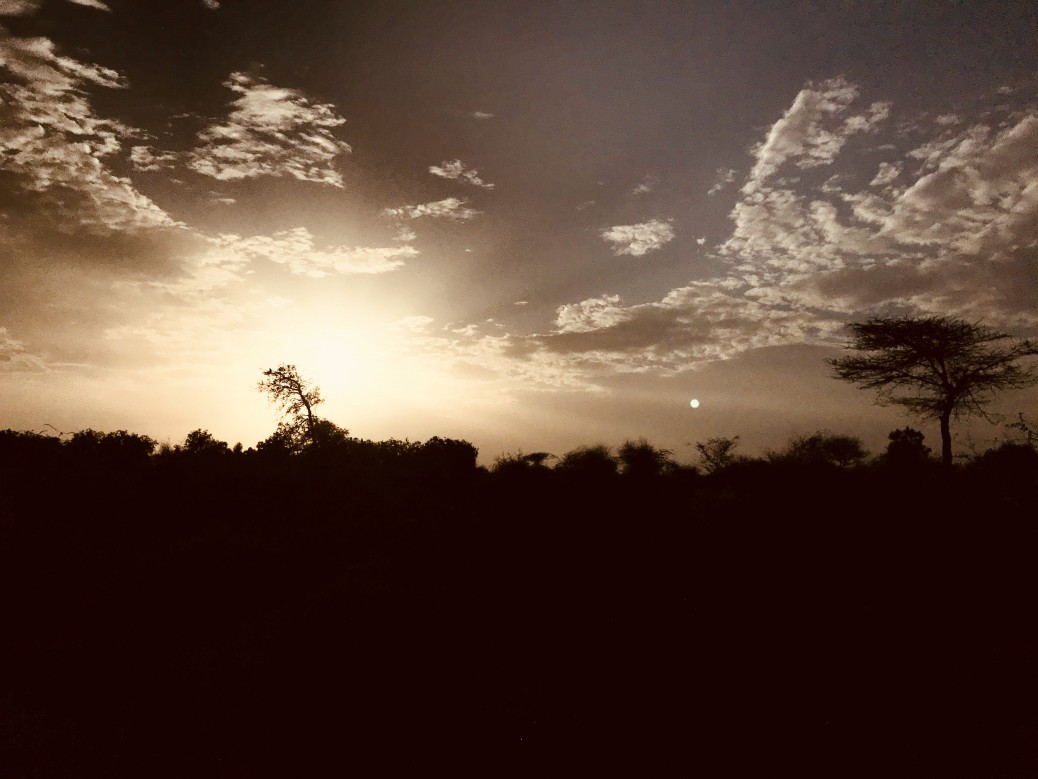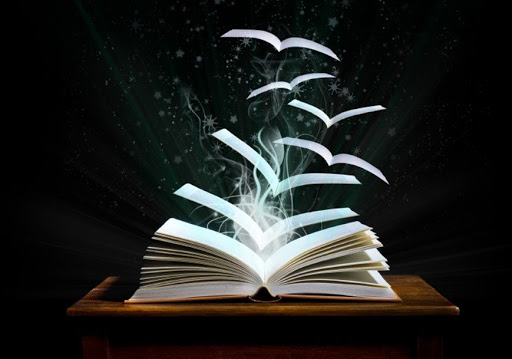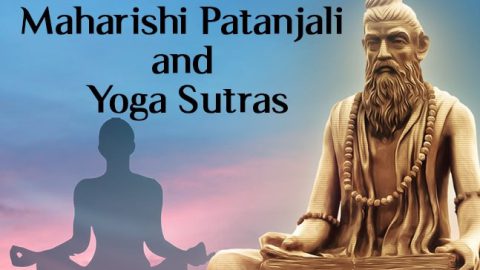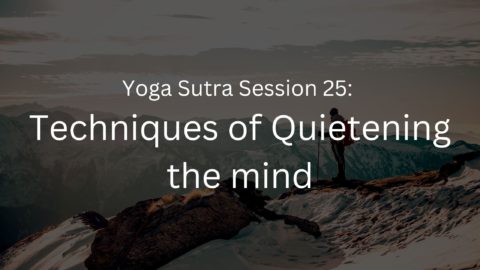Now, enter these sutras.
WHETHER FULFILLED IN THE PRESENT OR THE FUTURE, KARMIC EXPERIENCES HAVE THEIR ROOTS IN THE FIVE AFFLICTIONS.
We talked about five kleshas, five afflictions, five causes which create misery. All actions, whether fulfilled in the present or the future, karmic experiences, have the roots in the five afflictions. The first affliction is avidya, lack of awareness, and the other four are by-products of it. The last is abhinivesh, lust for life. All the karmas that you do are born basically out of lack of awareness.
What does it mean, and what will be said when Buddha walks, eats, sleeps? Are those not karmas? No, they are not. They are not karmas because they are born out of awareness. They don’t carry any seed for the future. If Buddha walks it is in the present. It has nothing to do with walking in the past. It is not out of the past that he is walking. It is a present need, right now, here and how. It is spontaneous. If Buddha feels hungry, he eats, but it is spontaneous, here and now. The distance has to be understood.
This has been one of the theological problems in the East: Buddha lived for forty years after his enlightenment; what about those actions that he did during the forty years? If they had become seeds then he would have had to be born again.
Or is there some difference?
They don’t become seeds, they don’t become….
You take your food every day at one o’clock in the day. It can be taken in two ways. You look at the clock and suddenly you feel the hunger pains in the stomach. This is hunger out of the past. It is not spontaneous because every day you have been eating at one o’clock. One o’clock reminds you that it is the time to be hungry. Not only does it remind you, it triggers the whole body and the whole body starts feeling hunger. You will say that just by being reminded, one cannot feel hungry – right. But the body follows your mind. Immediately the body is reminded that it is one o’clock, ‘I must be hungry.’ The body follows suit: in the stomach you feel the churning of hunger. This is a false hunger created out of the past. If the clock says it is only twelve, if somebody has put the clock one hour backwards, you will look and you will say that there is still one hour – ‘I can go on doing my work’ – there is no hunger.
You live out of the past and habit: your hunger is a habit, your love is a habit, your thirst is a habit, your happiness is a habit, your anger is a habit. You live out of the past. That’s why your life is so meaningless, with no significance, with no lustre in it, with no splendor. It is a desert-like phenomenon with no oasis.
A Buddha lives in the spontaneity of the moment. If he feels hunger, he feels hunger not because of the past. Right now, the body is hungry. His hunger is real, true. Right now he feels thirsty. The thirst is there; it has not been triggered by the mind. You live through the mind. Buddha has no mind; the mind has been washed clean. He lives through his being, what so ever happens, whatsoever he feels like. That’s why people like Buddha can say, ‘Now, I am going to die.’ You cannot say it. How can you say it? You have never felt anything spontaneous. You feel hungry because the time is there; you feel like loving because an old habit pattern is repeated. You have not known death in the past, so how will you recognize death when death comes? You will not be able to recognize it; death will come. A Buddha recognizes death.
When death came, Buddha told his disciples, ‘If you have to ask something you can ask, because I am going to die.’ A man who has lived spontaneously will feel hunger when the body is hungry, will feel thirsty when the body is thirsty, will feel death coming when the body is dying. It is simply strange that people die and they cannot see that the body is dying, they cannot feel. They have become so unfeeling, so mechanical, robot-like.
Death is a great phenomenon. When you can feel hunger, why can’t you feel death? When you can feel that body is going sleepy, why can’t you feel that body is going into death? No, you cannot feel. You can feel only out of the past, and in the past there has been no death so you don’t have any experience. The mind carries no memory so when death comes, it comes, but the mind is unaware.
Buddha says, ‘Now you can ask if you have to ask something, because I am going to die.’ And then he sits under a tree and dies consciously.
First he removes himself from the body, then the subtle layers, the subtle body, then he goes on moving inwards. In the fourth step he dissolves. He takes four steps inwards. In the fourth step, he dissolves; he takes four steps inwards.
Buddha doesn’t die because of death, he dies himself. And when you die yourself it has a beauty of its own, it has a grace. Then there is no fight.
When a man is aware he lives in the moment, not out of the past. This is the difference: if you live out of the past then the future is created, the wheel of karma moves; if you live out of the present then there is no wheel of karma. You are out of it, you have dropped out of it. No future is created.
The present never creates the future, only the past creates the future. Then life becomes a moment-to-moment phenomenon with no continuity with the past. You live this moment. When this moment has gone another moment is there. You live another moment, not out of the moment gone but out of your awareness, alertness, out of your feeling, your being. Then there is no worry, no dreams, no imagination in the future, no hangover from the past. One is simply weightless; one can fly.
Gravitation loses meaning. One can open the wings, one can be a bird in the sky, and one can go on and on and on. There is no need to return back. There is nowhere to come back to; a point of no return is reached.
What is to be done? With the accumulated past karmas you have to do the method of prati-prasav: you have to go backwards, living, reliving so that the wounds are healed. You are finished with the past – the wound is closed.
The second thing is that when the past account is closed, then you are finished with it: all the records burned, the seeds burned, as if you never existed, as if you are born right this moment; fresh, fresh like the dewdrops in the morning. Then live with awareness. Whatsoever you did with your past memories, now do the same with your present phenomena. You relive with consciousness, now live every moment with consciousness. If you can live every moment with consciousness you don’t accumulate karmas, you don’t accumulate wounds, you don’t accumulate at all. You live an unburdened life.
This is the meaning of sannyas: to live unburdened. Clean the mirror every moment so that no dust gathers, and the mirror will always reflect life as it is. To live an unburdened life, to live a life without any gravitation, to live a life with wings, to live a life of the open sky is to be a sannyasin. In old, ancient books it is said that a sannyasin is a bird of the sky – he is! Just as the birds in the sky don’t leave any footprints, he leaves no footprints. If you walk on the earth, you leave footprints.
A man who is unaware walks on the earth – not only on the earth but on wet earth, leaves footprints – the past. A man of awareness flies like a bird; he leaves no footprints in the sky, nothing is left. If you look backwards there is sky, if you look forward there is sky – no footprints, no memories.
When I say this I don’t mean that if a Buddha knows you, he will not remember you. He has memories, but no psychological memories. Mind functions, but it functions as a mechanism, separately. He is not identified with the mind. If you go to Buddha and you say, ‘I have been here before, do you remember me?’ he will remember you. He will remember you better than anybody else because he has no burdens. He has a clean, mirror-like mind.
You have to understand the difference, because sometimes people think that when a man becomes perfectly alert and aware and the mind is dropped, he will forget everything. No, he does not carry anything, he remembers. His functioning is better now: mind is more clear, mirror like. He has existential memories, but he doesn’t have any psychological memories. The distinction is very subtle.
For example: you came to me yesterday and you were angry at me. You come again today and I will remember you because you came yesterday. I will remember your face, I will recognize you, but I don’t carry the wound of your anger. That is for you to do. I don’t carry the wound that you were angry. In the first place I never allowed the wound to be there. When you were angry it was something that you were doing to yourself, not to me. It was just a coincidence that I was there. I don’t carry the wound. I will not behave as if you are the same person that was angry yesterday. The anger will not be between me and you. The anger will not color the relationship in the present. If anger colors the present relationship, this is psychological memory; a wound is carried.
And a psychological memory is a very falsifying process: you may have come to ask to be forgiven, and if I am carrying the wound, I cannot see your present face which has come to be forgiven, which has come to repent. If I see the old face of yesterday I will still see anger in the eyes, I will still see the enemy in you; and you are no more the enemy if you have repented. The whole night you couldn’t sleep, and you have come to be forgiven. I will behave in such a way because I will project yesterday onto your face. That yesterday will destroy the whole possibility of the new being born. I will not accept your repentance, I will not accept that you are feeling sorry. I will think that you are cunning. I will think that there must be something else behind it because the anger, the face of an angry man is still there, in between me and you. I may project it so much that it will become impossible for you to repent. Or, I may project it so deeply that you will completely forget that you had come to be forgiven. My behavior may again become a situation in which you become angry. And if you become angry, my projection is fulfilled, strengthened. This is psychological memory.
Existential memory is okay, it has to be there. A Buddha has to remember his disciples: Anand is Anand and Sariputra is Sariputra. He is never confused about who is Anand and who is Sariputra. He carries the memory but it is just part of the brain mechanism, functioning apart, as if you have a computer in the pocket and the computer carries the memory. Buddha’s brain has become a computer in the pocket, a separate phenomenon. It doesn’t come into his relationships. He does not always carry it. When it is needed he looks into it, but he is never identified with it.
When a person lives with full awareness in the present – and with full awareness you cannot live anywhere else because when you are aware, only the present is there; the past, the future are no more, the whole life becomes a present phenomenon – then no karma, no seeds of karma are accumulated. You are freed from your own bondage, the bondage created by yourself.
And you can be free. You need not wait for the whole world to be freed first. You can be blissful. You need not wait for the whole world to be freed from miseries.
Tags: Patanjali Yoga Sutra 19 Moment To Moment










